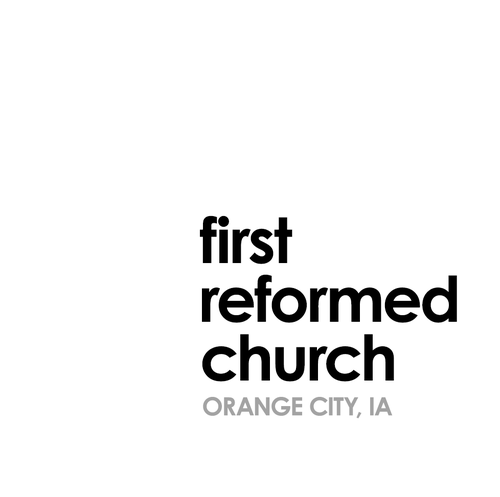Molehills and Mountains - by Greg Steggerda

A frustrated teacher, grappling with online learning after his school closed this week, said, “We’re making a mountain out of a molehill!” In some cases I’m sure it’s true, but I think we may be more guilty of making molehills out of mountains. The complex adjustments required to socially distance healthy people are necessary to protect that small percentage of vulnerable people and to put our front-line health warriors in the best position to win this fight, but they are hard to figure out. We want something easier; we want less disruption in our lives. And so with these choices, as with so many, our skills at rationalization and our tendency to justify things we want make it easy to reduce a significant issue to something simple.
When we do that, we’re just like the religious leaders of Jesus’ time. Matthew 23:23 is part of a long tirade he made against that group:
“‘Woe to you, teachers of the law and Pharisees, you hypocrites! You give a tenth of your spices—mint, dill and cumin. But you have neglected the more important matters of the law—justice, mercy and faithfulness. You should have practiced the latter, without neglecting the former.’”
Note that what the Pharisees did wasn’t bad - they gave a fair tithe out of their herbs. But they took that small act of obedience and offered it as evidence of their devout faithfulness, all the while ignoring the fundamental requirements of the covenant.
Lest you think this was a new idea, take a look at Micah, especially Micah 6:8, in which God reminded his people through the prophet that this contract between them called for justice, mercy and faithfulness. In fact, Micah built a detailed case that God’s people had become so legalistic that they thought their meager tithes justified all kinds of abuses against the vulnerable.
That’s what we’re tempted to do, isn’t it? We want to point to our church attendance and giving record and Sunday School participation as evidence of our piety, even as we struggle not to skewer rivals and rend reputations with our poison tongues. Some cheat customers or partners and blindly ignore the needy at the same time as they demand every penny of cash and second of time and iota of attention they think they deserve. Others demand safety and security for themselves but want to be free to ignore the experts and government leaders who want us to just stay home, whether it’s during a blizzard or a pandemic.
God is clear throughout scripture: unless we do justice (work to ensure that the most vulnerable among us gets what the most advantaged have) and love mercy (sacrifice for others beyond what’s fair, and give up our right to what’s owed us) and live faithfully (do all of these things as part of our humble walk with God), nothing we do in God’s name counts for much.
Justice, mercy and faithfulness are the mountain we climb as disciples. Let’s not be satisfied with crowing from the tops of the molehills of small behaviors like offerings and attendance.
When we do that, we’re just like the religious leaders of Jesus’ time. Matthew 23:23 is part of a long tirade he made against that group:
“‘Woe to you, teachers of the law and Pharisees, you hypocrites! You give a tenth of your spices—mint, dill and cumin. But you have neglected the more important matters of the law—justice, mercy and faithfulness. You should have practiced the latter, without neglecting the former.’”
Note that what the Pharisees did wasn’t bad - they gave a fair tithe out of their herbs. But they took that small act of obedience and offered it as evidence of their devout faithfulness, all the while ignoring the fundamental requirements of the covenant.
Lest you think this was a new idea, take a look at Micah, especially Micah 6:8, in which God reminded his people through the prophet that this contract between them called for justice, mercy and faithfulness. In fact, Micah built a detailed case that God’s people had become so legalistic that they thought their meager tithes justified all kinds of abuses against the vulnerable.
That’s what we’re tempted to do, isn’t it? We want to point to our church attendance and giving record and Sunday School participation as evidence of our piety, even as we struggle not to skewer rivals and rend reputations with our poison tongues. Some cheat customers or partners and blindly ignore the needy at the same time as they demand every penny of cash and second of time and iota of attention they think they deserve. Others demand safety and security for themselves but want to be free to ignore the experts and government leaders who want us to just stay home, whether it’s during a blizzard or a pandemic.
God is clear throughout scripture: unless we do justice (work to ensure that the most vulnerable among us gets what the most advantaged have) and love mercy (sacrifice for others beyond what’s fair, and give up our right to what’s owed us) and live faithfully (do all of these things as part of our humble walk with God), nothing we do in God’s name counts for much.
Justice, mercy and faithfulness are the mountain we climb as disciples. Let’s not be satisfied with crowing from the tops of the molehills of small behaviors like offerings and attendance.
Posted in Daily Devotions
The Beautiful Art of Accepting One Another Through Life's Changes
February 16th, 2026
The Journey from Self-Centered to Selfless
February 9th, 2026
The Transformative Power of Gratitude in Our Relationships
February 2nd, 2026
Holding Hands, Not Grudges: The Transformative Power of Forgiveness
January 26th, 2026
The Power of Speaking Truth
January 19th, 2026
The Power of Respect: Transforming Our Relationships from the Inside Out
January 12th, 2026
Finding Your Identity: The Foundation for Deeper Relationships
January 5th, 2026
Walking with God into the New Year
December 28th, 2025
When the Why Questions Won’t Let Go
December 22nd, 2025
Immanuel: Your Advocate in Every Moment
December 15th, 2025
